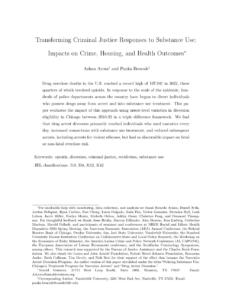Chicago Fire Department Technical Assistance

Crime Lab data analysts were embedded in the Emergency Medical Services (EMS) division of the Chicago Fire Department (CFD) to generate data dashboards and visualizations using data from patient care reports.
Challenge
EMS services are essential to the health and well-being of Chicago residents. Still, historically, no centralized group at CFD could interpret, analyze, and use data to inform the improvement of EMS services offered to the community.
Opportunity
The Crime Lab’s timely data analyses and technical assistance have helped CFD and other city agencies provide appropriate place-based solutions and services to the community areas most in need.
Project overview
Beginning in February 2020, data analysts embedded in the Emergency Medical Services (EMS) of the Chicago Fire Department (CFD) worked on a variety of initiatives in line with the priorities of the department in an effort to improve EMS services offered to the community. The dissemination of vital data to CFD, the Mayor’s Office, the city’s Department of Public Health, and other city and state agencies supported better health outcomes.
One of the most comprehensive studies examined patient data and EMS responses to opioid overdose calls. Tracking the volume and location of opioid overdoses gave city officials a more accurate picture of where opioid overdoses were rising.
In March 2020, the Crime Lab created the COVID dashboard to help quantify the strain the COVID pandemic put on the EMS system and to track the spread of the pandemic throughout the city. The data provided through the dashboard resulted in CFD leadership adopting new policies that led to more efficient hospital bed space and more effective tracking of overall patient transmission rates during the height of the pandemic.
The Crime Lab also identified high-risk locations for the spread of COVID-19, created a Medical Examiners dashboard for COVID-related deaths and created other data-tracking mechanisms to assist with COVID responses.

Transforming Criminal Justice Responses to Substance Use: Impacts on Crime, Housing, and Health Outcomes
This paper evaluates the impact of diverting individuals who possess drugs away from arrest and into substance use treatment in Chicago between 2010-2022.

Agent-Based Model of Combined Community- and Jail-Based Take-Home Naloxone Distribution
This paper outlines the impact and cost-effectiveness of naloxone distribution, particularly for people facing criminal justice involvement.

Empirical Analysis of Prediction Mistakes in New York City Pretrial Data

Brookings Institution Commentary: Making the invisible epidemic visible
Using new data from a large urban trauma center in Chicago, we document substantial under-reporting of domestic violence at the time of receiving medical care.

